
The Business of Fashion
Agenda-setting intelligence, analysis and advice for the global fashion community.

Agenda-setting intelligence, analysis and advice for the global fashion community.
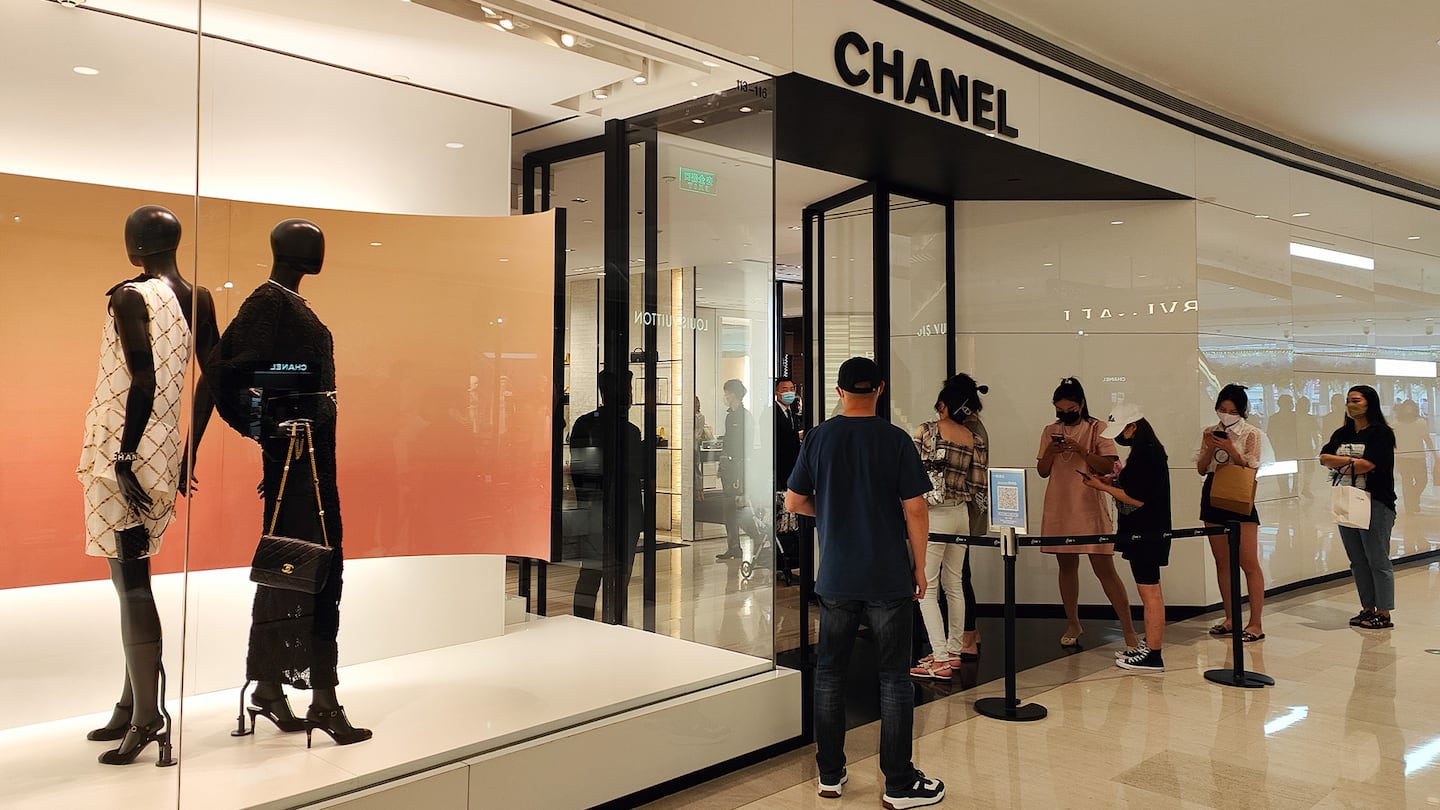
This week, as continued strict controls led to rising unrest and economic turmoil, China’s previously uncompromising zero-Covid stance finally appeared to thaw.
Mass testing will no longer be conducted in areas that are not considered “high risk,” with lockdowns targeting specific buildings or floors rather than entire neighbourhoods or cities, Beijing said. People with mild symptoms will no longer be required to isolate in centralised quarantine facilities, and “high-risk” areas can end lockdowns after five days if no new infections are found. In many instances, lateral flow tests will replace PCR testing.
Restrictions on domestic travel were lifted, with virus checks for people traveling between regions no longer required.
The policy shift came after simmering frustration erupted into widespread public protests in cities including Beijing and Shanghai. The protests began last month after crowds in Xinjiang blamed virus restrictions for a deadly apartment block fire claiming 10 lives.
ADVERTISEMENT
While China has rolled back restrictions before during periods with low cases numbers — only to put them back in place — this move seemed like a major shift in the government’s attitude. That Chinese authorities were responding to people’s desire for less-strict controls prompted jubilant celebrations from locals. The government also said it would accelerate vaccinations among the elderly.
As seen over the past two years of the pandemic, relaxing Covid restrictions can lead to a rapid pick up in luxury consumption, especially as consumers who haven’t been able to travel or eat out during lockdowns often accumulated bigger pots of money to spend, said Jelena Sokolova, equity analyst for Morningstar.
“That would be my expectations too for the Chinese market, if the restrictions are sustainably relaxed,” she said. “Chinese luxury consumption remains well below the pre-pandemic level, hence pent-up demand can be expected.”
In recent months, many Chinese shoppers had avoided crowded spaces like shopping malls even after lockdowns were lifted for fear of being “pinged” over a potential exposure to the virus — leading to testing and isolation — or being sent to a centralised quarantine facility if they were to test positive. The move to less-frequent testing, more localised lockdowns and at-home quarantines should help boost foot traffic.
Yet the path to reopening is likely going to be long and bumpy, analysts and experts warn. Even though China’s first reopening in 2020 after the first Covid lockdowns led to a boom in demand that soared into 2021, this time around could be different.
The easing of restrictions comes as the country enters into peak flu season. The Financial Times reported on Thursday that Beijing city, home to 22 million people, is running out of medical supplies, with hospitals starting to ration ibuprofen and paracetamol — suggesting the country’s healthcare infrastructure remains ill prepared for the loosening of restrictions.
Even though Omicron is milder than previous coronavirus variants, if infections spike among those with underlying health conditions and under-vaccinated groups like the elderly, there’s a possibility emergency services could be overwhelmed. In Europe, even after authorities accepted living with (rather than eliminating) the virus, easing of restrictions ebbed and flowed for months depending on the number of available hospital beds.
Luxury items are the ultimate discretionary purchase, with the feel-good factor heavily influencing the willingness to splurge on $3,000 bags and $900 shoes. Beyond the severity of Covid restrictions in place, a rebound in purchasing to 2021 levels also hinges on a rebound in consumer confidence; in the face of a gloomy economic outlook and the prospect of rising infection rates, how long that could take is uncertain. This week, new data showed Chinese imports and exports in November were down by their largest margins in years, the FT reported.
ADVERTISEMENT
In fact, executives are increasingly worried about “the long road to consumer confidence recovery,” according to a new Oliver Wyman report released this month, with 83 percent saying they expected it to impact business in China over the next 12 months. Morning Star’s Sokolova pointed to the country’s property market slump as another concern, noting how weakening real estate prices from 2014 to 2016 led to a slowdown in luxury demand.
Shares of some of luxury’s biggest groups, including Richemont, LVMH and Hermès, were flat this week.
Plus, international travel — a huge driver of Chinese luxury goods purchases pre-pandemic — remains heavily restricted. Even after leisure reopens, over half of respondents to an Oliver Wyman survey that pooled thousands of Chinese consumers said they would wait between several months to a year or more to travel outside of the mainland.
Right now, even though restrictions appear to be easing, “the parameters in China remain challenging for brands,” said Daniel Langer, chief executive at luxury strategy firm Equité and executive professor of luxury strategy at Pepperdine University in the US.
“The crackdown on conspicuous consumption is an ongoing risk factor and the preference shift of Gen-Z towards Chinese brands in many categories will [put] further pressure on luxury brands,” he said.
For now, brands will be closely monitoring how the situation plays out. The upcoming Lunar New Year festivities will be a chance to put current consumer appetite for luxury goods to the test.
THE NEWS IN BRIEF
FASHION, BUSINESS AND THE ECONOMY
ADVERTISEMENT
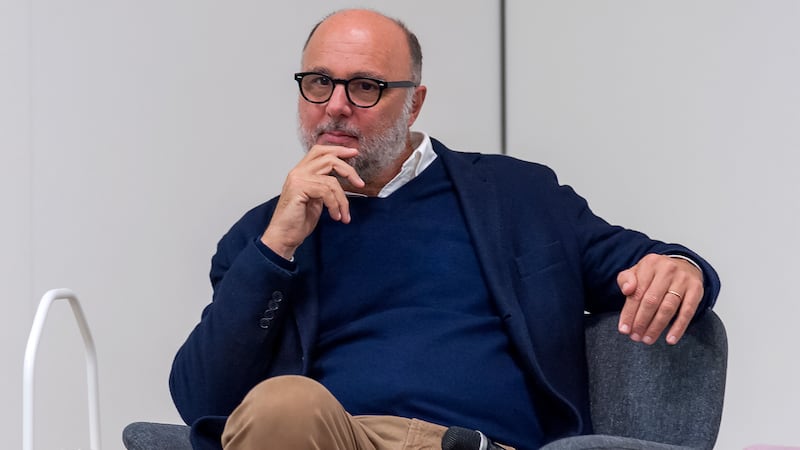
Prada names new chief executive. Patrizio Bertelli and Miuccia Prada are stepping down as the group’s co-CEOs, passing the reins to former Luxottica chief Andrea Guerra and hiring a new leader for their flagship Prada brand.
Antoine Arnault becomes CEO of LVMH Holding Company. In his new role, Arnault (the second-oldest of Bernard’s 5 children) replaces Sidney Toledano, the 71-year-old president of LVMH’s Fashion Group and former chief of the Christian Dior Couture brand, which was merged into LVMH’s wider portfolio in 2017.
Naomi Campbell Launches a MasterClass. The British supermodel is teaching a MasterClass on modelling fundamentals for the streaming platform. The lessons will focus on basics like how to pose and develop a signature walk but will also delve into her journey as Black model with many firsts.
Shein to spend $15 million on factories after labour abuse claims. The Chinese retailer will spend the money over the next three to four years, Shein said Monday. The move is in response to allegations of labour abuse in a recent UK television documentary that found that employees at two factories in China were working 18-hour days and fined for making mistakes.
Cucinelli sees 28 percent sales growth this year, strong demand in 2023. The group, best known for its everyday cashmere outfits, made a previous forecast of around 25 percent in October.
Primark owner sticks to forecast of lower profit in 2022-23. Last month the group reported adjusted operating profit of £1.44 billion ($1.77 billion) for 2021-22.
Lululemon raises annual revenue forecast on strong demand for sportswear. The company now expects full-year 2022 revenue between $7.94 billion and $7.99 billion, up from prior forecast of $7.87 billion to $7.94 billion.
Express, Gap stores glutted with prior seasons’ goods. Clothing retailers such as Express and Gap that stashed away mountains of unsold basics during the coronavirus pandemic now are slashing prices on clearance merchandise in a last-ditch effort to clear clothing racks.
Nike’s Jordan Brand to open first flagship in Milan. The store will be the first permanent location for the basketball and streetwear focussed brand.
Frasers defies retail gloom as profit rises. British sportswear and clothing retailer Frasers stuck to its financial guidance for 2022-2023 after reporting a 39 percent rise in first-half profit that reflected the success of its drive to take the group upmarket.
THE BUSINESS OF BEAUTY
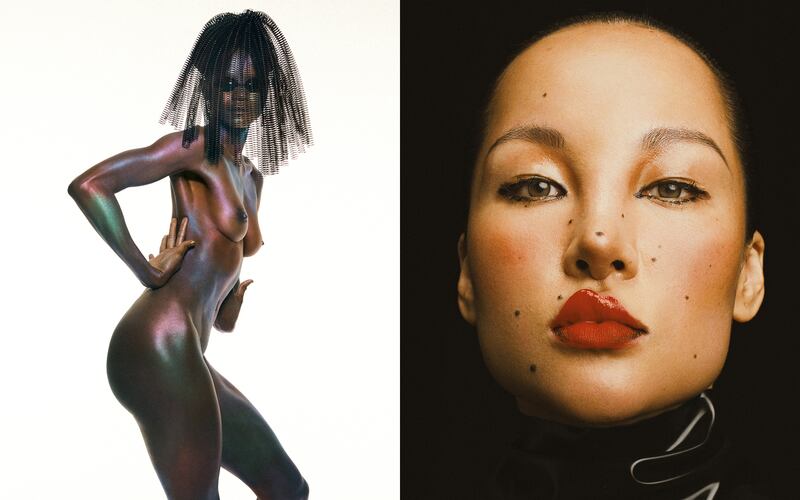
System Magazine launches new bi-annual beauty publication. The beauty push is part of a wider strategy by CEO and publishing director Mike Obenson to turn System from a single print product into a broader media proposition.
Fragrance Industry is a luxury standout as demand keeps roaring. Global sales of high-end fragrances began to pick up during the pandemic and have been gathering steam during the past year.
PEOPLE
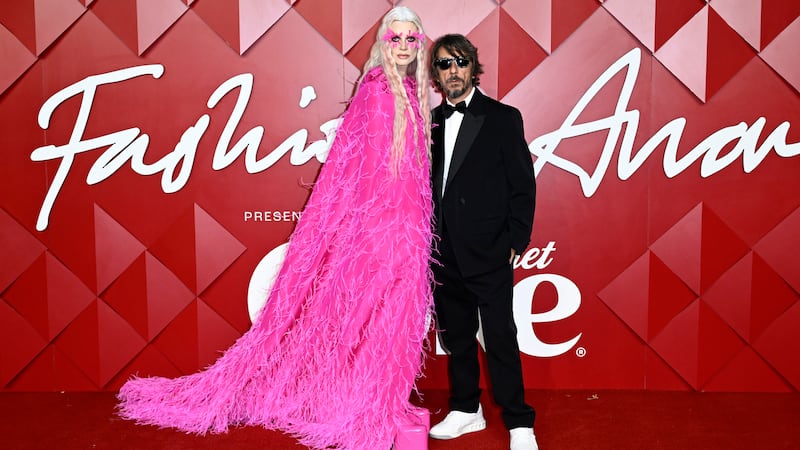
Pierpaolo Piccioli, Grace Wales Bonner, Bella Hadid and Burberry among 2022 Fashion Award winners. The ceremony, hosted by British-Jamaican actress Jodie Turner-Smith, honoured both industry stalwarts and newcomers, also paying tribute to those the industry lost this year — including André Leon Talley, Thierry Mugler, Hanae Mori, William Klein and Queen Elizabeth II.
Ganni appoints first chief brand officer. The Copenhagen-based brand has appointed Priya Matadeen, former Dazed Media managing director, to the role which will drive Ganni’s global brand strategy. Matadeen will oversee all brand and communications departments from Ganni’s London office.
VF Corp says CEO to retire, names Dorer as interim chief. Rendle, who was also chairman of the board, served as chief executive for nearly six years and has been with the apparel and footwear maker for about 25 years. Dorer joined VF Corp’s board in 2017 and has served as the company’s lead independent director since 2021.
Nike ended its relationship with Kyrie Irving, the brand told BoF. On Monday, The Athletic reported that Nike had parted ways with Irving after suspending him on Nov. 4, when the NBA player shared a link to film with anti-semitic views and initially refused to apologise for his actions. The Nike endorsement saw the Brooklyn Nets player receive $11 million per year since 2011, according to sports business publication Sportico.
MEDIA AND TECHNOLOGY
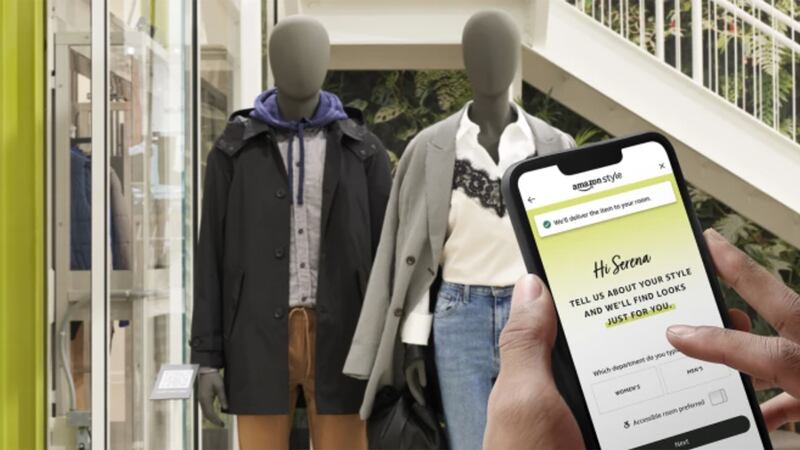
Amazon is launching TikTok-style feed in bet on social commerce. The world’s largest e-commerce company on Thursday said the new feature, called Inspire, will roll out to select US customers in early December and go national in the next few months.
Resale platform archive raises $15 million Series A round. The software company powers resale for brands including Oscar de la Renta, Sandro and The North Face, among others. One of Archive’s competitors, Trove, which counts Lululemon, Levi’s and Patagonia as clients, raised $77.5 million dollars last autumn.
Compiled by Joan Kennedy.
With consumers tightening their belts in China, the battle between global fast fashion brands and local high street giants has intensified.
Investors are bracing for a steep slowdown in luxury sales when luxury companies report their first quarter results, reflecting lacklustre Chinese demand.
The French beauty giant’s two latest deals are part of a wider M&A push by global players to capture a larger slice of the China market, targeting buzzy high-end brands that offer products with distinctive Chinese elements.
Post-Covid spend by US tourists in Europe has surged past 2019 levels. Chinese travellers, by contrast, have largely favoured domestic and regional destinations like Hong Kong, Singapore and Japan.